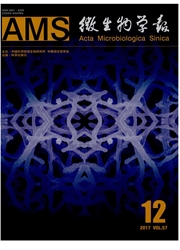

 中文摘要:
中文摘要:
昆虫专性内共生细菌是一类与宿主昆虫长期协同进化的共生微生物,在许多昆虫体内均有发现,主要存在于昆虫特化的器官(含菌体)内,以垂直传播的方式由母系遗传。专性内共生细菌与昆虫的生存、繁殖以及进化等方面息息相关,其主要功能是为宿主提供必需氨基酸等营养物质。因其长期生活在宿主细胞内处于封闭的高营养的环境中,其基因组的特征与普通细菌基因组有很大区别,包括基因组大小、GC含量、基因缺失等方面。通过对共生细菌基因水平上的深入研究,有助于理解专性内共生细菌在宿主昆虫协同进化过程中的作用。目前,昆虫内共生细菌基因的生物学功能、内共生细菌之间以及内共生细菌与宿主之间的互作机制还不是很清楚,有待进一步的研究和探索。
 英文摘要:
英文摘要:
In nature, many insects, especially sap-feeding insects, harbor nutritional bacterial symbionts, which are called obligate endosymbionts. These bacteria co-evolved with their hosts for millions of years. Obligate endosymbionts are commonly found in specialized organs, named bacteriomes or mycetomes that consist of a number of insect' s cells (bacterioeytes or mycetocytes). Obligate endosymbionts strictly maternally inherited, providing essential amino acids to the hosts, and relating to survival, reproduction and evolution of the insects. Because of enriched nutritional environment, compared to those free-living bacteria, the genomes of obligate endosymbionts have different characteristics, such as genome size, GC content, and gene deletion. Although the genomes of many insect endosymbionts have been carefully analysis, the gene functions of endosymbionts and the interactions between endosymbionts/hosts and endosymbionts remain unknown. Thus, to provide an insight into the co-evolution of endosymbionts and their hosts, further studies of endosymbionts at genetic level are required.
 同期刊论文项目
同期刊论文项目
 同项目期刊论文
同项目期刊论文
 期刊信息
期刊信息
